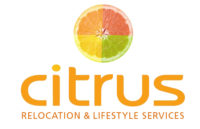House buying is an exciting time in anyone’s life, whether it’s your first home or 4th. It’s also the most expensive time, with the cost of buying a house in the UK on average between 5-20% of the price of the property. And with house prices in the UK increasing by 10.3% in November 2022 to around £295,000, that is a heavy cost to any potential buyer.
We explore the different costs to consider when buying a house in the UK and explore some options to keep costs down as you look for your dream property.
2- What are the costs when buying a house?
The first cost to be aware of when buying a house in the UK is stamp duty which is always a percentage of the total house value. Depending on several factors including where you’re buying in the UK, whether it’s you’re a first-time buyer and how much the total price is, stamp duty will vary.
After stamp duty comes the legal fees, known as conveyancing, which are an essential cost of buying a house as a solicitor will need to instruct the purchase on your behalf. In 2022, legal fees for buying a house were between £850-£1500 depending on where in the UK your solicitors are based. This doesn’t include the local searches which are started by the local authority your property is in and will cost between £250 to £300.
After these upfront costs, you’ll need to consider the monthly mortgage rates, council tax, utilities or whether the property will need any work after moving in as well as other ongoing bills that moving house means.
3- How much is stamp duty?
Stamp duty or SDLT is a legal requirement in the UK when you buy a property and should always be considered in the initial cost when buying a house. Depending on the price of the property you’re buying and where it is, stamp duty can add thousands of pounds to the overall costs involved in buying a house, and this needs to be paid upfront.
Stamp duty fees for a house in England over £250,000 and under £951,000 is 5% for buyers so if you’re buying a house for £350,000, your stamp duty is calculated as 5% of the £100,000 so it would be £5,000. It’s always best to calculate the stamp duty you’ll be buying when you’re at the property search stage. Using a stamp duty calculator will mean you’re aware of the added costs of buying your new home so it doesn’t come as a nasty shock when you put down your offer.
Unfortunately, there is no alternative or cost-saving when it comes to stamp duty and it’s a fee that will need to be paid within 14 days of buying your new property.
4- Mortgage rates and using brokers
The next essential cost of buying a property will be the mortgage unless you’re one of the very lucky cash buyers who won’t need to borrow from a bank.
Applying for a mortgage can be one of the trickiest parts of buying a house as it’s a more complex process involving banks, credit checks and reviewing your annual income. If you’re self-employed getting a mortgage can be even more complex as banks need more assurance from you which often means higher costs too.
When it comes to applying for a mortgage there are lots of different processes involved, and with them come different fees. Most banks will charge an arrangement fee with their mortgage which starts at £500, whilst others may include the fee in your first mortgage payment. If you’re an existing customer with a bank, you may be able to save money as some banks will waive the fees for existing customers.
There may also be an indemnity fee on a new mortgage which can be an unexpected cost when you’re considering buying a house, and depending on the individual broker, if you choose to use a mortgage broker, you may have to pay them a fee as well. It’s important to note that some brokers include their fees in the overall mortgage cost so you won’t face an upfront fee.
5- Removal company costs
Once you’ve been through the mortgage process and worked out a completion date, the next cost you might need to consider is the removals. Whether you’re moving into your first home or 4th, the one thing you’ll have in common is ‘stuff’.
Your belongings will need moving too and often the easiest way is to arrange a removal company to help pack up and transport your things safely and securely. Typically, removal companies in the UK will start around £400, depending on where you are and how much stuff you have to move.
You can of course arrange to hire your own van or even ask family and friends to help pack your belongings up and move them to your new home. This would definitely keep costs down and can be useful if you know some handy people with large vehicles but for many, it’s not a feasible option.
That being said, removal costs will depend on a few things; how much you’re planning to move, where you’re moving to and from (international or within the UK) as well as other factors like your pets, whether you have small children and need to stay in a nearby hotel.
6- Renovation costs
So, you’ve made it this far with buying a new home in the UK and have paid your first mortgage payment on moving into your new home. Aside from bills, what’s the next cost you’ll be faced with?
It’s important to stress, renovating isn’t an essential cost but the first thing you should ask yourself when buying a new home is; do you need to renovate?
Many people move house with the intention of changing something within the property they’re buying, whether it’s a lick of paint or knocking down a wall (or two). Renovating is a big part of buying a property for some and definitely comes at additional costs which should be considered in the asking price of the property.
Well, again this will depend on the current state of your new property but a very common cost for homebuyers is renovating. Whether it’s repainting every room, replacing flooring or completely remodelling bathrooms and kitchens, renovating a home comes at a big cost that should always be considered before you even sign on the dotted line.
It’s not an essential cost of buying a new home but it is something to think about when you’re searching as renovating doesn’t come cheap.
7- Other costs to consider when buying a house
Other costs to consider when you’re buying a new home include the council tax as this varies depending on where your new house is located in the UK and home insurance which will vary depending on the size of the home, its security and the value of your belongings.
Utilities and broadband are other costs that will need to be considered once you’ve moved and to avoid any nasty surprises, we’d always recommend checking out the utility bills in the property before you move in.
8- Why using a house-buying agent can help
Whether you want some advice managing the cost of moving, need to navigate buying a house in a new country or simply want to reduce the stress that finding, buying and moving into a new home can cause, working with a house-buying agent will help. We work with lots of clients with very different needs from a property but all want to help keep track of costs and get the most out of from house-buying process.
If you’re thinking about moving or want to speak to an experienced agent, contact our team today on +44 203 303 3208 or email globalmobility@citrusrelocation.com.

